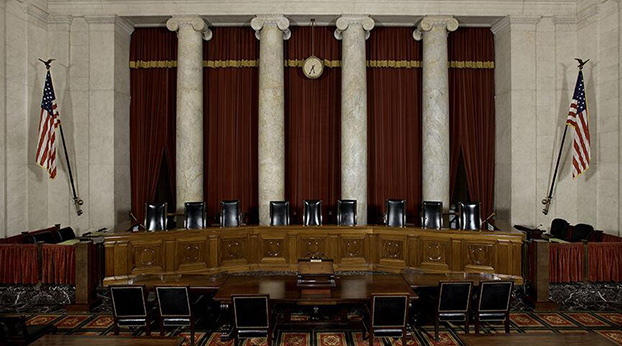Cameron asks for review of Ky. implied-consent laws for DUI
Published 7:39 am Thursday, December 30, 2021

- Kentucky Supreme Court Chambers
FRANKFORT, Ky. (KT) – Attorney General Daniel Cameron is asking the U.S. Supreme Court to review a decision by the Supreme Court of Kentucky that struck down parts of Kentucky’s implied-consent laws for DUI cases.
The law requires individuals suspected of impaired driving to submit to a breath or blood test if requested by law enforcement, but In April, the Kentucky Supreme Court on a 5-2 ruling, threw out a 2014 DUI conviction in Daviess County where the defendant refused a blood test.
The majority of the Court said the district judge properly held that the refusal could not be used against him for a conviction, nor could the refusal allow the penalty to be enhanced. They also ruled that admission of the refusal evidence was not harmless and required a reversal of the conviction, and agreed with the Court of Appeals that the trial court erred in allowing prosecutors to introduce the refusal to explain a lack of scientific evidence in the case.
“Prosecutors should be given every reasonable tool to prosecute individuals who drive under the influence of drugs or alcohol,” Cameron said. “We know that many of Kentucky’s impaired driving offenses involve drugs, and blood testing is essential to hold these offenders accountable. A case with these stakes deserves consideration by our nation’s highest court.”
According to the AG’s office, in 2020, Kentucky State Police reported that drugs were involved in 1,873 collisions, resulting in 86 fatalities and 1,086 injuries. In Cameron’s request to the U.S. Supreme Court, he writes that “allowing States to admit a motorist’s refusal of a blood draw serves as a powerful deterrent to impaired driving.”
The petition points out that the Supreme Court of Kentucky is the first, and only, appellate court in the nation to rule that refusing a blood draw cannot be admitted in a criminal prosecution under the Fourth Amendment. Nine other appellate courts have reached a contrary conclusion.
The U.S. Supreme Court is expected to decide this coming spring if they will hear the case.





